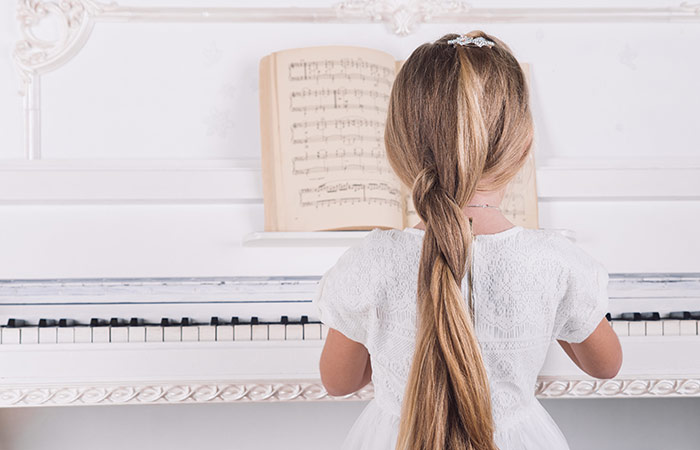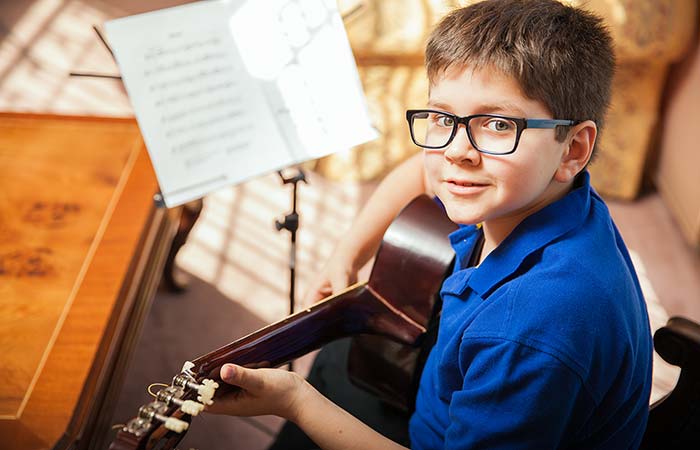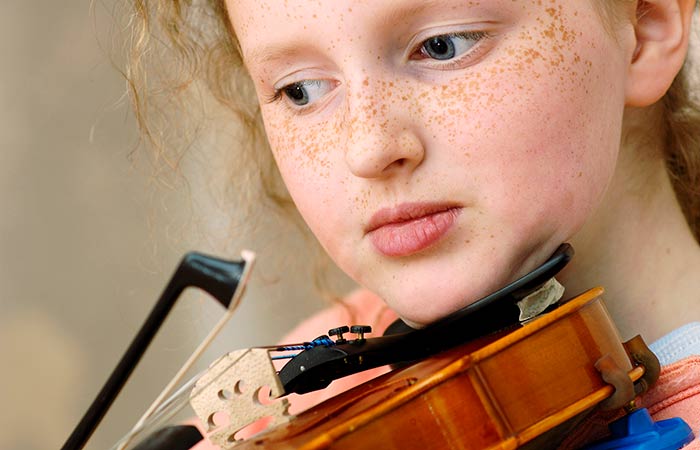How to motivate yourself to learn a musical instrument, and how to motivate your child to learn a musical instrument
Motivating yourself
THE FIRST step is to choose a musical instrument to learn. Of course, choosing an instrument is not that easy because there are literally thousands of instruments that one can learn to play. In this day and age, the most popular instruments that people take up is the piano and the guitar. I would choose a piano or a guitar. Then you could learn the scales and the chords, and practise them until you can play them fluently. Once you can play the jazz scales fluently (including the pentatonic scale), you can learn to play jazz by way of the jazz chords and jazz scales! There are a lot of exercises that one can do to play the jazz chords and scales better.
Learning some Jazz Standards
After learning to play the jazz scales by heart, you could start to learn to play some jazz songs by heart. To keep the discipline, you should practise the songs, chords and scales daily. You should have to motivate yourself with some kind of reward system to maintain the pressure to practise. One has to plan methodically if you want to motivate yourself, so I would opt for having some well-defined goals I want to reach. I would make a list of these goals. Your list could include modern works of fusion, classical jazz pieces, well- known jazz songs, classical works, piano jazz songs and modern piano popular genre music.
(“Fly me the moon”, “When I was seventeen”, “Piano man”, “Those were the days”…etc). If I choose the guitar, I would have a look at the guitar versions of piano songs and vice versa (e.g. the guitar version of “piano man”.) It is majorly impressive if you can do both versions as well as the mouth accordion pieces of “the piano man”.
It is at this point that I have quickly run through the exercises and tutorials available on YouTube and have come to the conclusion that the ideas I have propagated are not only do-able but they would be very enjoyable. So I have already started learning “The piano man” (guitar and piano) and “When I was seventeen” (guitar) Frank Sinatra).
If you join me now you have something worthwhile to do when sitting at home having nothing to do.
You are of course not limited to the songs or material I am referring to, but having a working knowledge of jazz principles is always a good thing.
Get a loop-station for a background loop
Get a loop-station for yourself or an older child, so that you can have a background loop to play along with. The D minor 7 chord gives a good background loop for jazz exercises. Remember “It ain’t got a thing if you don’t have that swing” (Duke Ellington). The swing is procured by emphasising the second beat, and not the first beat as in classical music.The swing gives jazz music that signature jazz feel. To motivate yourself you have to promise yourself a reward, and keep to it. Maybe a jazz add-on pedal will do the thing. Don’t be too hard on yourself.
Motivating your child
Motivating your child is a bit different. Whereas you can motivate yourself by outcomes (i.e. being able to play jazz scales fluently) it might be a bit more intricate to use outcomes as a carrot for your child. But there will be some sort of horse-trading that will be the achilles heel for your child. You will just have to find it. You might find that the outcome may be a longer-term motivation than you necessarily bargained for, but once you find the winning recipe, it works without fail. Don’t be disheartened if your child does not immediately go for it like a fish in the water. Once he has tasted the benefits, he might catch up to it. Using cash rewards is always luring and tempting. But if he is serious about his music, he would enjoy the hard work coupled to the monetary reward. One could even frame it as a game that the child would like to play.
Plan the practice schedule
You could divide the work into sections and reward the sections as they are completed. Ensure that work is followed up, and a repertoire is constantly exercised. Always push to go forward and be disciplined in your approach.
If you are a parent and child team working together, one must make sure that one of the parties does not get into arrears with the work. Make sure the work and exercises get done.
Keep it fun
Start young and keep it fun.
That means that you do not expect too much of yourself or the child. Let music always be fun and a pleasure until they themselves get the motivation to want to work much harder. Put more effort into praising your child’s efforts and not their talent. Talent is not everything as there are many talented people that never really got anywhere because they didn’t enjoy it and they didn’t put in the effort needed. It’s important to praise your child and encourage them, because you never know to which level your child may arise. With a small child it’s important to keep the atmosphere of fun, and stop when it becomes a “work”. You must join in with the playful atmosphere of the little ones.
Remember to not only reward your child but you yourself as well. Don’t see it as a bribe but a worthwhile investment into your and your child’s life. See how far you can get with the principle of rewarding good behaviour. But it must be part of a more considerable behavioural practice that is disciplined, and ensures that the child has a solid work-based background that will continue on its own.
Let the child choose the instrument
The way to motivate your child is by being very excited about music and especially their music and their instrument. Of course, it’s essential to let your child do the instrument of his or her choice.
How the child chooses the instrument is another question because your child probably won’t know which instrument to start with, so the best would be to sort of introducing him or her to instruments. Google is amazing. Most children know a lot about instruments because of all the information you can find on the internet. If you have a piano,
it would be wise to let your child start with piano, and guitar is also a good obvious choice. It’s of course not a good idea to let him or her first do this instrument, or that instrument, if the child has already decided in his or her mind that his or she wants to do the violin or the flute as an example. It’s best then to take out the money and buy that specific instrument for him or her to learn. It will pay off.
Attend your lessons without fail for you or your child
Motivating yourself as an adult is not that difficult as we always want to take ourselves forward.
It’s more challenging to motivate your child or another person. The most important way to motivate yourself or your child is by going to your lessons religiously every week and not to skip one of them, whether you have practised or not, or whether you think your work is good enough or not,
It’s essential to go to your lesson because your teacher will bring motivation and freshness to the work you’ve done for this week, and even if you didn’t have time to do anything, she/he would bring new vision and new motivation for the next week. If you skip one lesson and you think “I need another week just to practice for the next lesson”, be assured that it’s not going to work. Having another week will rather keep you on the same level than the week before! So just go to the lesson.
Enter for an exam
An important motivating factor is entering for an exam. Ask your teacher to enter you for an external exam, and it will give you that motivation to work for. This is the same with your child. For the child it’s not really about motivation. If you enrol them for an exam, they are sort of being forced to do work on certain pieces and attain a certain level. Motivating your child with exams is sometimes quite tricky. Read the part on remuneration; it could help a lot!
Attend concerts or summer school group classes
Do attend concerts or summer school group classes at your music school and take part even if you feel you’re not up to standard because that will motivate you and bring you in contact with other students. It’s always motivating and uplifting and will bring you to another level in your own music.
Find an excellent teacher
I would say that the most significant motivational factor for any student is their teacher. Therefore it’s essential to find a teacher with whom you can click, and one that you can look up to, someone that can give you good guidance, and a person that you feel you’re learning something from.
If that’s not the case, it’s important to rather change or try and find another teacher. If you’re at a music school, you can always contact the leaders and ask them for a change of a teacher.
Reward your child or yourself
Do not be hesitant to motivate your child with remuneration. It is not bribing the child but rewarding the child for work well done. You have to do it with yourself as well. Remember to not only reward your child but yourself as well. Don’t see it as a bribe but a worthwhile investment into your and your child’s life. See how far you can get with the principle of rewarding good behaviour. But it must be part of a larger behavioural practice that is disciplined, and ensures that the child has a solid work-based background that will continue on its own.
Put your child in control
It’s no secret that when we’re told to do something, we don’t always want to do it. During the course of a day, there are several different people (parents, teachers, older siblings, coaches) telling kids what to do. Add music to that list and it’s no wonder motivation seems to dwindle. Weiss advice is to “put your child in control” by letting him or her determine their own practice schedule.
“Kids hear adults tell them what to do all the time; to catch their attention, let them plan their own practice schedule,” says Nicole Weiss, LCSW Psychotherapist and Coach.
“Start with the end in mind. Basically, you want to get your child to make the decision that he or she needs to practice so that he or she can play the way he or she wants to play. After the decision is made, the parent can help the child research and figure out how often a good musician practices. The child then sets a schedule based on the reality that, to be good, one must practice.”
Not only will this allow your child to feel a sense of control, but it will also help him or her to learn the value of practice
“The child makes the schedule; then the parent reinforces it,” Weiss says. “I’m sure many parents reading this would say…’ yeah but will they do that day to day?’ That’s where you come in — but you have more weight in your reminder. It was the child’s desire to make the goal. Additionally, the reward should be for accomplishing little goals. For example: ‘practice every night this week and we can download that song you want.’ Reward the work.”
Show your child that playing a musical instrument is a special privilege and an opportunity that isn’t necessarily available to everyone. Teach your child to appreciate music and all it has to offer. Help them discover that music can enhance their life.
“I believe that we’re here in this world to do great things with the gift of our lives, and we’re here to serve others,” says Heather F. from Music for Young Violinists. “Learning to play [the violin] helps us in both of these areas — we’re drawn up into a level of greatness through the discipline required to study this art form, and in this process, we cultivate a gift that we can share with others.”
This also includes helping your child develop a love for music. Take them to concerts or shows, play music at home, and help them discover what they like.
Many adults wish they had stuck with a hobby or endeavour they started as a child, like playing a musical instrument. While this can be a difficult concept for young kids to grasp, teaching them to appreciate music can help them understand why practice is important.





